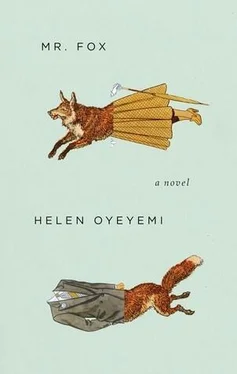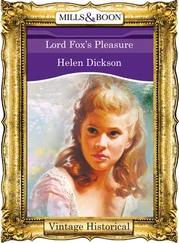It was quiet until a bunch of youngsters swept in and started yelling their orders all over the place. I raised my eyes from the line I’d been staring at for the past fifteen minutes or so and watched them. They used long words and called each other by nicknames that alluded to the classical world. Castor was present, and Pollux, and Patroclus and Achilles. College men, in town for the weekend. Three of them had a muttered dispute amongst themselves before heading over to where I sat. They drew out chairs, turned them around, and sat on them. Usually it annoys me when people do that, but I wanted to know what they had to say. They asked me if I was S. J. Fox, and I said, Yup. They named a few of my books and said they liked them. I said, Thanks. They called their friends over and announced my name. Looking round at the faces, I could tell that some of them had no idea who I was, but they did an impressive job of pretending that wasn’t the case. There’s something to be said for good breeding. You get hypocrites out of it, but you get the odd respectful youngster, too. They called me sir, and boss, and wouldn’t hear of me buying my own drinks. I put my book aside and answered their questions as well as I could. These boys all had names like Toby and Jed — their real names, that is. They didn’t try to get me to call them by their Greek names. They reminded me of Daphne’s set, kids who had never been poor and never would be, spouting cheerfully lopsided theories. Men of the world who didn’t live in the world — not properly. Me, I’m a farmer’s son. These boys reckoned the Europeans were about to get into a scrap over Czechoslovakia, and that there’d be war again, and we’d be in it again. They wanted to know what I thought about that. I reminded them that Germany had had its balls cut off — land taken, no army to speak of, no money — there wasn’t going to be any war. I told them they weren’t going to have to do what I did, that if they were looking for glory they’d better find another way. “I hope you’re right, Mr. Fox,” Jed said earnestly — or was it Toby? Blue sweatshirts and ears that stuck out. “I hope you’re right, but I don’t think you are. Things are really boiling over — the Germans are saying all kinds of things, and France and England are running around trying to get promises—”
“Didn’t you hear? We aren’t promising anything. Roosevelt said we’re staying neutral. What’s Czechoslovakia got to do with us?”
Toby — or Jed — stared at me. “What’s Czechoslovakia got to do with us? Well, what’s independence got to do with us? Liberty? The pursuit of happiness?”
All I could think of were a couple of lines someone else had recited to me a long time ago, in France: To goodness and wisdom we only make promises; pain we obey. That’s Proust, y’know, the guy had told me. (Daphne should have said to me, “You know what Proust says. . ” If she had, that little exchange of ours wouldn’t have happened, or would have happened differently, maybe, would have ended without me having to shut the window in her face.) The boys went quiet, which means I’d said the lines aloud. They were all squinting at me, as if I was some figure in a fading photograph and each of them was vying to be the first to identify me. A pox on the young. I left without saying good-bye, just walked out.
I heard voices as I headed from my driveway to the front porch. Daphne and a man. She was laughing. She sounded drunk. It was only three o’clock. I slowed my steps with a corner still to turn; hedges, luckily, so they couldn’t see me. I heard the porch swing creak — the two of them were sitting on it. It was John Pizarsky she was with, and they were talking about fairy tales, of all things. D. had a pair of scissors, and a vaseful of water, and was arranging some flowers — whether she’d bought them or he’d given them to her, I was sure the flower arranging was unnecessary — she always did it, stem by stem, even when presented with a bunch of flowers that already looked all right.
“Why have husbands got to keep themselves all locked up, that’s what I want to know,” Daphne complained.
“Not all of them do,” Pizarsky told her. He wasn’t drunk at all. I didn’t like that — those two sat together, his voice measured and sober, and her saying just anything that occurred to her. He was going to remember the entire conversation, and she would remember a quarter of it at the very most. Unfortunate.
“Oh, it’s only the cold ones that do it, isn’t it?”
“I don’t know about cold, Daphne. . ”
“No, you don’t know about cold. Because you’re not cold, are you, J.P.?”
He didn’t answer. Too busy trying to think of some phrase that would make her see him as ardent, I’ll bet.
“You’re not Bluebeard? Or Reynardine?” I caught flashes of Daphne through the brambles; she was examining her arrangement of the flowers from a number of angles. She didn’t ask his advice, and I was glad she didn’t. She always asked my advice — not that I ever give a response she can make use of.
“Nor Fitcher, no.”
“Fitcher?”
Just what I was wondering. Pizarsky seemed to know his stuff, though. He’d told me himself that he’d been studying for a doctorate in anthropology until his father had demanded he help steer the family’s jewellery business. A diamond mine in Africa and a gold mine in Nevada. Opal fields in Australia, and more. I don’t like to think about how rich Pizarsky is. He doesn’t seem to like thinking about it, either. It’s awkward that he has so much. What’s left for him to want?
He told my wife a bizarre story. It started out almost too screwed up to even be a fairy tale. It was all about a magician called Fitcher who went around with a basket, begging for food. And any woman who pitied him and gave him food was compelled to jump into his basket and go home with him and be his wife.
“Yes,” Daphne said, laying down her scissors. “I felt so sorry for him at first. . All I wanted to do was make him happy. . ”
“Yes, well, Fitcher did this with three sisters in a row. He set each of them the don’t-look-in-the-locked-room test — the first two sisters failed, of course. The only way for Fitcher’s final wife, the third sister, to survive her danger was by becoming insane. If you think about it, it was inevitable. That woman went through a lot. She found her sisters all chopped up and sunk in blood, and she collected the parts and she joined them up. Only a very, very young child would think of a solution like that, and only an insane person would actually try it. It worked, though; they came back to life, and she sent them home. On a clear afternoon in an empty house she covered herself in honey and rolled around in a barrel’s worth of feathers, and a skeleton sat by in a chair the whole time; it was meant to take her place, and she didn’t hesitate or falter because she’d gone nuts. She was scared right out of her mind. She had to be — to rescue herself. So she quit working to make sense of things — we don’t always realise it, but it’s hard work we do almost every waking moment, building our thoughts and memories and actions around time, things that happened yesterday, and things that are happening right now, and what’s coming tomorrow, layering all of that simultaneously and holding it in balance. She cut it out and just kept moving. She was nobody, she was nowhere, doing nothing, but doing it as hard and fast as she could. And once she was fully covered with honey and feathers she walked out into broad daylight and used the only words she hadn’t forgotten: I’m a bird; I’m Fitcher’s bird. If she’d ever been anyone other than Fitcher’s bird, she didn’t know a thing about it. What did she look like, all sticky with quills? What did her eyes say? Did she even understand the words she was saying? Never mind; her mouth said: I’m a bird, I’m Fitcher’s bird . And nobody who heard her could doubt her. She met the bad magician; she met Fitcher himself, on her way home. I’m a bird, she told him. He didn’t recognize her. I mean, she was gone. He looked into her eyes and there was no woman there. And he never caught her again.”
Читать дальше












